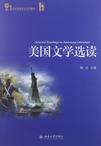美国文学选读
出版时间:2012-6 出版社:北京大学出版社 作者:陶洁 编 页数:271 字数:590000
内容概要
陶洁编著的《美国文学选读》是《求知高等学校英语专业系列教材》的一部分,旨在为英语专业高年级学生、美国文学爱好者和研究者提供一片园地,用以学习和研究美国文学,提高文学素养,开拓视野,陶冶情操。《高等学校英语专业系列教材:美国文学选读》是一本集历史、文本、批评理论于一书的文学选读教材。该书介绍了美国自殖民地时期到20世纪末的历史文化背景和各个时期的文艺思潮以及代表作家和他们的代表著作。本书按照美国文学的发展分九章,每章包括历史文化背景简介、作家作品选读、文学聚焦、阅读与欣赏和时代之声5个部分。精简而丰富的注释、引导自主性研究的思考题能有效帮助读者加深对所选作品的理解和鉴赏。
书籍目录
前言
绪论
第一单元
Benjamin Franklin(1706-1790)本杰明·富兰克林
Autobiography
第二单元
Ralph Waldo Emeon(1803-1882)拉尔夫·华尔多·爱默生
Self-Reliance
Henry David Thoreau(1817-1862)亨利·大卫·梭罗
Walden
第三单元
Nathaniel Hawthorne(1804-1864)纳撒尼尔·霍桑
Ethan Brand
第四单元
Herman Melville(1819-1891)赫尔曼·梅尔维尔
Moby—Dick
第五单元
Walt Whitman(1819-1892)沃尔特·惠特曼
Song ofMyself(I,II,VI&LII)
Emily Dickion(1830-1886)埃米莉·狄金森
Hope
Because I Could Not Stop for Death
EdgarAllanPoe(1809-1849)埃德加·爱伦·坡
The Raven
第六单元
Mark Twain(1835-1910)马克·吐温
OnWilliam Dean Howells
第七单元
HenryJames(1843-1916)亨利·詹姆斯
The Real Thing
第八单元
Ezra Pound(1885-1972)艾兹拉·庞德
A Girl
Wallace Steve(1879-1955)华莱士·史蒂文斯
The Snow Mall“
RobertFrost(1874-1963)罗伯特·弗罗斯特
Love andA Question
William Carlos Williams(1883-1963)威廉·卡洛斯·威廉斯
The Uses ofPoetry
LangstonHughes(1902-1967)兰斯顿·休斯
The Weary Blues
第九单元
Eugene Gladstone ONeill(1888—1953)尤金·格拉斯通·奥尼尔
Long DayS Journey into Night
第十单元
F.Scott Fitzgerald(1896-1940)弗·斯科特·菲茨杰拉德
Winter Dreams
第十一单元
William Faulkner(1897-1962)威廉·福克纳
Bam Burning
第十二单元
ErnestHemingway(1899-1961)厄内斯特·海明威
Hills Like White Elephants
第十三单元
Ralph(Waldo)Ellison(1914-1994)拉尔夫·埃里森
King ofthe Bingo Game
第十四单元
JohnUpdike(1932-2009)约翰·厄普代克
Separating
第十五单元
SaulBellow(1915-2005)索尔-贝娄
A Silver Dish
第十六单元
RobertHayden(1913-1980)罗伯特-海登
Those Winter Sundays
RobertLowell(1917—1977)罗伯特·洛威尔
Man and Wife
Allen Giberg(1926-1997)艾伦·金斯堡
On the Conduct ofthe World Seeking BeautyAgait Government
Robert Creeley(1926-2005)罗伯特·克里莱
Water Music
SylviaPlath(1932-1963)西尔维娅·普拉斯
Last Words
第十七单元
Edward Franklin Albee(1928- )爱德华·富兰克林·阿尔比
WhoSAfraid ofVirginiaWoolf?
第十八单元
Toni Morrison(193l- )托妮·莫里森
Beloved
第十九单元
Maxine Hong Kingston(1940- )汤亭亭
The Woman Warrior
第二十单元
LeslieMarmonSilko(1948- )莱丝莉·摩门-西尔柯
Lullaby
第二十一单元
RobertBly(1926一)罗伯特·布莱
The Buried Ttain
John Ashbery(1927- )约翰·阿什贝利
AndUtPicturaPoesisIsHorName
Adrienne Rich(1929- )艾德里安娜·里奇
Diving into the Wreck
RobertPiky(1940- )罗伯特·平斯基
TO Television
Rita Dove(1952- )丽塔·达夫
My Mother Ente the Work Force
Gary Soto(1952一)加里·索托
Mexica Begin Jogging
How Things Work
第二十二单元
DavidAlanMamet(1947- )大卫·艾伦·马麦特
Oleanna
章节摘录
Self-Reliance (Excerpt) I read the other day some verses written by an eminent painter which were original and not conventional.The soul always hears an admonition in such lines, let the subject be what it may.The sentiment they instil is of more value than any thought they may contain.To believe your own thought, to believe that what is true for you in your private heart is true for all men, —that is genius.Speak your latent conviction, and it shall be the universal sense; for the inmost in due time becomes the outmost, —and our first thought is rendered back to us by the trumpets of the Last Judgment.Familiar as the voice of the mind is to each, the highest merit we ascribe to Moses, Plato, and Milton is, that they set at naught books and traditions, and spoke not what men but what they thought.A man should learn to detect and watch that gleam of light which flashes across his mind from within, more than the lustre of the firmament of bards and sages.Yet he dismisses without notice his thought, because it is his.In every work of genius we recognize our own rejected thoughts:they come back to us with a certain alienated majesty.Great works of art have no more affecting lesson for us than this.They teach us to abide by our spontaneous impression with good-humored inflexibility then most when the whole cry of voices is on the other side.Else, tomorrow a stranger will say with masterly good sense precisely what we have thought and felt all the time, and we shall be forced to take with shame our own opinion from another.There is a time in every man' s education when he arrives at the conviction that envy is ignorance;that imitation is suicide; that he must take himself for better, for worse, as his portion; that though the wide universe is full of good, no kernel of nourishing corn can come to him but through his toil bestowed on that plot of ground which is given to him to till.The power which resides in him is new in nature, and none but he knows what that is which he can do, nor does he know until he has tried.Not for nothing one face, one character, one fact, makes much impression on him, and another none.This sculpture in the memory is not without preestablished harmony.The eye was placed where one ray should fall, that it might testify of that particular ray.We but half express ourselves, and are ashamed of that divine idea which each of us represents.It may be safely trusted as proportionate and of good issues, so it be faithfully imparted, but God will not have his work made manifest by cowards.A man is relieved and gay when he has put his heart into his work and done his best; but what he has said or done otherwise, shall give him no peace.It is a deliverance which does not deliver.In the attempt his genius deserts him; no muse befriends; no invention, no hope.Trust thyself:every heart vibrates to that iron string.Accept the place the divine providence has found for you, the society of your contemporaries, the connection of events.Great men have always done so, and confided themselves childlike to the genius of their age, betraying their perception that the absolutely trustworthy was seated at their heart, working through their hands, predominating in all their being.And we are now men, and must accept in the highest mind the same transcendent destiny; and not minors and invalids in a protected corner, not cowards fleeing before a revolution, but guides,redeemers, and benefactors, obeying the Almighty effort, and advancing on Chaos and the Dark.
图书封面
评论、评分、阅读与下载
用户评论 (总计16条)
- 作为英语专业的学生,我比较推荐这本书。英美文学是英语学习中很重要的一部分,这本书收录了美国文学史上很重要的十几位作家的作品,这本书也可以作为平时英语阅读阅读的材料,拓展自己的词汇量。另外,有些学校会使用这本书作为教材或者考研参考书目,总之多看没有坏处,挺好的一本书。
- 拿到书匆匆翻了几页,觉得排版很不俗,陶洁是选读的老牌子了。之前就有好多人买陶洁高搅拌的那本选读,觉得那本也挺不错的。不过因为是天津瓦艾国语大学的考研指定书目,好出就是这本书的作家内容都很新,也是天津外国语大学的特点之一嘛。其次觉得这本书赏析挺好的,还是用中文评,所以就是不是英语专业的看也没什么问题,陶冶情操挺好的。大姑娘党的发货速度的确比以前要快了。
- 美国文学课用的课本。选材很全,很有代表性,对当代的文学语篇选得比较多。最喜欢的是文章后面都会有简单的讲解评述。赞一个!
- 这本书质量很好,里面的内容清楚,没有缺页少页的现象。精选了美国著名文学大师的优秀篇目,有精彩的分析。很不错的一本书,值得去读。
- 作为选读来说还是挺好的,适合和文学史一起配套用。
- 列选的都挺好
- 价格合适,书籍质量很好。
- 多学无害
- he老师要的一模一样
- 很好,很适合英语文学专业的学生阅读
- 精读几遍 文学韵味很浓
- 书还可以,上课用的教材,发现了一两处错误的地方。
- 印刷的时候应该段落之间空格大一点,比较好记笔记。
- 绪论部门字太小,看着很累。
- 是正版,书还不错,就是介绍的作者略少,连欧文都木有。。
- 打开包装一看实在是被shock到了,比二手还二手,封面上就有明显折痕,打开里面发现书页泛黄而且每隔几页都有一大堆折印,实在是太有失水准。这是我迄今为止在当当上买到的最不满意的一本书,虽然可能我只是运气不太好,但是希望这种事情以后少发生。上美国文学课系里的书定错只好自己重买,下周就要上课这本书我急用,结果却收到这么一本书,又急着看又实在是难以接受这样的质量,真心捉急!
